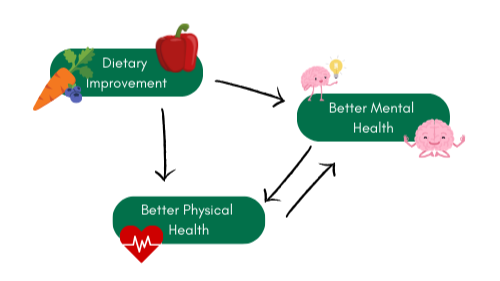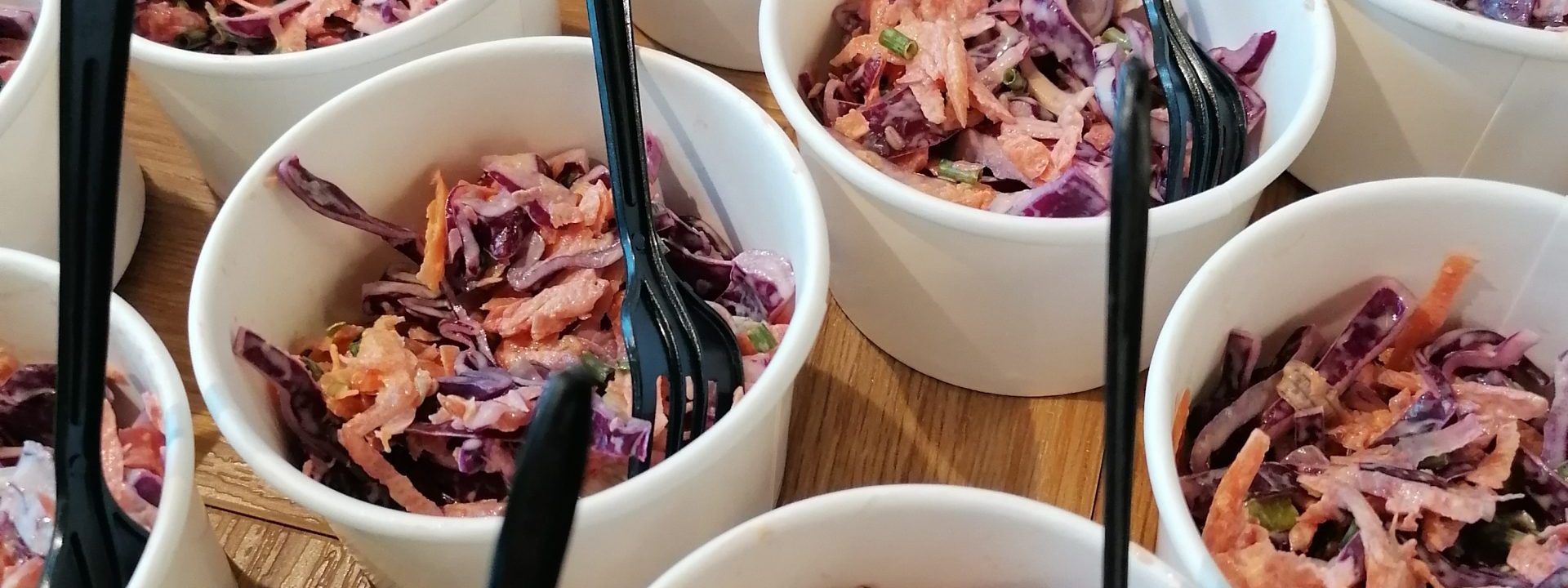By Helen Fielding (ANutr)
The relationship between diet and mental health is more linked than we first anticipate. And often this relationship exists in a repeating loop where poor mental health promotes poor diet which in turn again promotes poor mental health. The same is true in reverse with good diet and good mental health.

But why does this happen?
There are the phenomena called the Gut-Brain Axis which is a communication network between your digestive system and your brain – the communication is both physical and chemical, and controls feelings like your hunger queues and promotes the start of digestion when you begin your meal, amongst many other mechanisms. A common example of this gut-brain pathway is stress and IBS.
Alternatively, symptoms and behaviours which are common when suffering mental health conditions also have an impact on your dietary wellbeing. For example, a person with anxiety may display anxious movements or tapping and will expend additional energy they may not be aware of. Or an individual with depression, who might be impacted by tiredness or irregular sleep schedules, their dietary habits and mealtimes will be impeded, and more likely to snack on foods high in salt and sugar.
Our top tips to improve mental health through diet:
- Ensure you hydrate across the day – aim for 8 glasses of water.
- Start to increase your fibre intake – an easy swap would be from white rice to brown rice.
- Eat the rainbow - make your diet full of colour when choosing your vegetables this ensures you are consuming all vitamins and minerals.
- When possible, eat with friends. By sharing food and enjoying it together your mealtimes become an occasion rather than an annoyance.
- Focus on slow-release carbohydrates – to ensure you can maintain your energy across a day.
Helen’s top tips for eating better on low days:
- Make your life easier by using pre-chopped vegetables or accessible equipment like a multi-chopper.
- Plan ahead for times of low energy by batch making meals and freezing them.
- Try and ask for support from friends and family.
- Write down how foods make you feel after you’ve eaten this. So, if certain foods make you feel worse mentally, you will know to avoid them on other occasions.
- Choose the best you can. On a low day, if you are unable to bring yourself to cook a whole meal, eating a ready-meal or a healthy snack is better than eating nothing at all.








